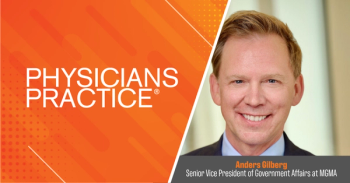
Six common asset protection mistakes
The top mistakes to avoid to protect your livelihood and lifetime savings.
As a medical professional, you are in the unique position of earning a high income for the majority of your career; however, with the perks of your high monetary reward come high professional risk. The fear of losing what you’ve worked so hard for to malpractice or misfortune is common to most financially successful physicians-and for good reason. Simple mistakes or faulty allegations can jeopardize a physician’s livelihood and lifetime savings in a flash.
Whether you are new to the profession or have been practicing medicine for many years, asset protection should always be at the forefront of your mind, especially as your wealth grows and you draw closer to retirement.
Here are the top six mistakes we see physicians make when it comes to asset protection…and how you can avoid them.
1. Having Inadequate Liability Coverage: Many physicians falsely believe that if they carry a personal liability umbrella policy and a medical malpractice policy that all of their personal and professional liabilities are adequately managed; however, this is far from accurate and can lead to some very dangerous gaps in coverage. Of course, a seven-figure personal liability umbrella policy is vital for nearly all physicians to pick up where home and auto insurance leave off, but it will not cover other business-related claims that require other types of risk management. Many physicians find that they should also explore the need for business continuation coverage, business disruption coverage, and even employment practices liability coverage to successfully defend against possible professional risk.
Trending:
2. Not Understanding Protection Differences in Retirement Accounts: Are your retirement savings protected from legal claims? Many physicians’ single most valuable financial asset is their qualified retirement account or rollover IRA, but many are unaware that the protection limits on each are not the same. Defined benefits plans such as 401ks, Profit Sharing Plans (PSP), and pension plans are considered “ERISA-qualified plans” by the IRS and, therefore, are protected by federal law from creditors and claims. Assets held in an IRA resulting from a rollover from an ERISA-qualified plan and IRA’s up to $1 mil (indexed annually) are protected from creditors under federal bankruptcy law. In addition, state laws may provide further protection. For instance, in Georgia all retirement accounts are exempt from garnishment so are protected; however when distributions are made from these accounts, those payments are considered “disposable income” and may be subject to garnishment. Other states will vary and you should check your state’s treatment of IRA and Roth IRA vehicles.
3. Misunderstanding Revocable vs. Irrevocable Trusts: Trusts can be excellent vehicles for both estate planning and asset protection, but the differences in type and their level of protection are often grossly misunderstood. A common myth is that assets in any trust are insulated from external claims, but this is only true of irrevocable trusts. Living trusts, or revocable trusts set up by physicians on their own behalf for the purpose of holding assets to be used during their lifetime, are not protected from legal claims. So why not transfer the bulk your wealth into an irrevocable trust and claim some peace of mind? Well, irrevocable trusts aren’t as flexible. Once the “grantor” puts money into an irrevocable trust, the asset then belongs to the trust and cannot be withdrawn at will, even by the grantor. These types of trusts are most commonly set up for the purpose of passing on inherited wealth to individuals after death. So, while irrevocable trusts certainly do provide the strongest protection from impending legal claims and/or creditors, overfunding an irrevocable trust can seriously hamper your financial flexibility.
4. Titling Assets Unnecessarily: Having your name on an asset, such as a vehicle, boat, snowmobile, or vacation home, that you aren’t actually using exposes yourself to unnecessary risk. Let’s say, for example, you buy your daughter a car for graduation before she leaves for college and you leave the car in your name. Now every time that vehicle is in use, even if it isn’t by you, even if she is in another state entirely, you are leaving yourself exposed to extant risk. Or perhaps you let a peer and his family use your lake home over the summer and their child is injured on your property. Guess who will take the fall should someone decide to take legal action? If something in your name is not in your personal use, you should avoid titling it as such.
Read More:
5. Titling Assets Under the Non-Physician Spouse: Many physicians, in order to avoid having their assets subject to malpractice claims, will put the majority of their assets in their non-physician spouse’s name. Easy solution, right? Well, the problem here is that now those assets are subject to any claims made against your spouse with virtually no protection. So, the next logical idea is to title the assets jointly with both spouse’s names on the deed or title. In many states, this can be an effective defense, but since the laws vary by state, you’ll need to see how your state treats jointly held assets before making any major moves.
6. Not Seeking Professional Advice: While many of the above solutions may be effective for physicians at large, comprehensive asset protection strategies are not one-size-fits-all. Individuals will hold varying degrees of equity in various assets, some of which are more exposed to risk than others. With your livelihood and lifetime savings on the line, asset protection should not be a piece of your financial puzzle that is overlooked. Just as a patient comes to you for your medical expertise, physicians should seek professional financial and legal advice to build adequate protection for themselves and their family on all fronts. Most high-risk, high-earning professionals would agree that the peace of mind that comes from knowing your assets, career, and lifestyle are protected is certainly worth the time and cost investment of an advisor and an attorney.
Risk management is only as effective as the plan you have in place. Since a complete asset protection plan may take months to implement from planning to execution, it’s best to get started before a potential problem jeopardizes all your hard work.
Newsletter
Optimize your practice with the Physicians Practice newsletter, offering management pearls, leadership tips, and business strategies tailored for practice administrators and physicians of any specialty.






